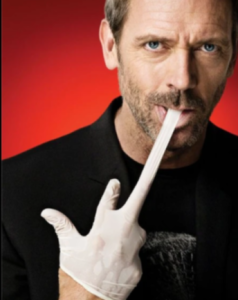by Jose Gomez
Running Out of Love is the fourth studio album by Swedish dream pop band The Radio Dept. Released on October 21, 2016, it is their first album since 2010’s critically acclaimed Clinging to a Scheme.
Known for their dreamy, lo-fi synth melodies, the Lund, Sweden trio embarked into new territory for Running Out of Love: dance. The energetic bass and electronics are reminiscent of classic 80s new wave bands like New Order and Tears for Fears, and what results is not only The Radio Dept.’s most exciting record, but their most sinister.
The Radio Dept. became socially conscious on Running Out of Love, an album filled with commentary on life in Sweden and citizen discontent. The first track, “Sloboda Narodu” gets its title from the Serbo-Croatian phrase that means “freedom to the people.” “Swedish Guns” features an echoing, intense synth melody above percussion and Johan Duncanson’s droning vocals. The lyrics are a direct criticism of the firearms industry in Sweden, the third largest gun exporter in the world. Duncanson satirizes the attitude that guns solve everything: “If you want something done/Get Swedish guns/Take care of someone/Get Swedish guns.” The following track, “We Got Game,” is another danceable song with haunting lyrics, about an authoritarian and tyrannical regime: “Is it true/Because gunshots say it’s true?”
The album’s centerpiece is the over seven minute long “Occupied.” Driven by ominous, deep bass and dissonant percussion, the song creates a suffocated and forlorn atmosphere. Several synth breaks occur throughout the composition, in between verses of a very forbidding and grim sounding Duncanson. The lyrics range from cynical and nihilistic (“Untied shoes and a lot to lose/As you went downtown/High on meaning/And the illusion of shared goals and values…”) to an Orwellian story of tyranny much like the earlier track “We Got Game” (“You were taken hostage with no war in sight/Robbed of youth and freedom/But when you signed on the dotted line/You had no idea…”).
“Occupied” is followed by “This Thing Was Bound to Happen,” a pleasant and accessible pop song more like The Radio Dept.’s earlier work. With its catchy chorus and sweet production, one might not notice the politically rebellious lyrics: “I’m walking the left hand path/It’s my contribution to the political debate/I thought this time they’d disappear/Now I just want to get out of here.”
The final track, “Teach Me to Forget” is far more personal than any other song on Running Out of Love. The narrator describes his desperate longing for a release from his regrets and guilt, pleading “Teach me to forget/You’re never tortured by regrets/And teach me to forget/Embarrassments and moral debts…” The danceable, ambient track leaves Running Out of Love spiraling to its end.
What’s most satisfying about Running Out of Love is the freshness it brings to The Radio Dept.’s discography. It changed their style without sacrificing what makes them so pleasant and lovable: the sweet, dreamy electronic compositions. While it may not be their best, the diverse range of styles and coherence in mood and theme makes Running Out of Love their most professional work. Up to the final swirling moments of “Teach Me to Forget,” listeners are consumed in a wave of emotional doubt, social tension, and desperate hope. My personal rating: 8/10.























